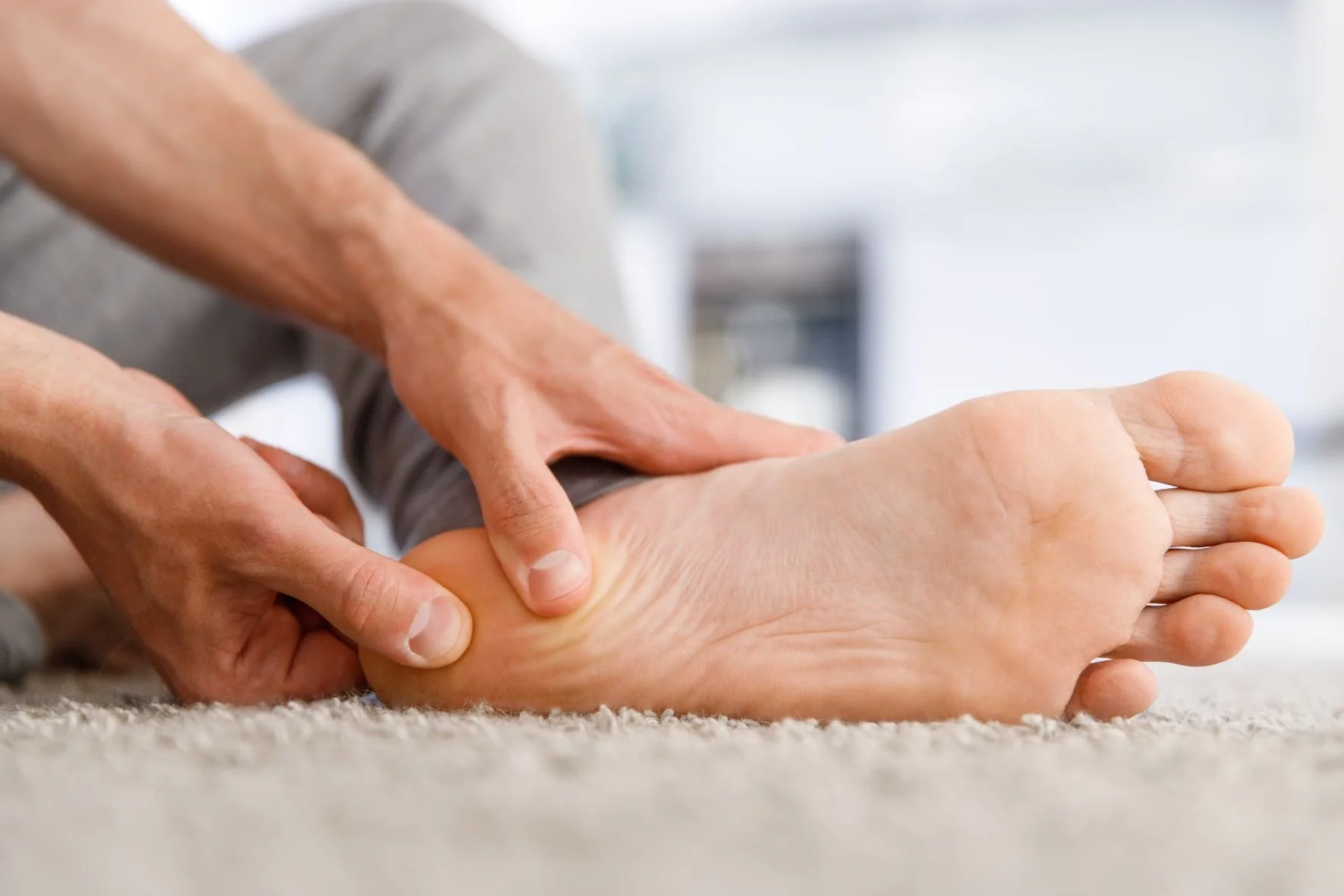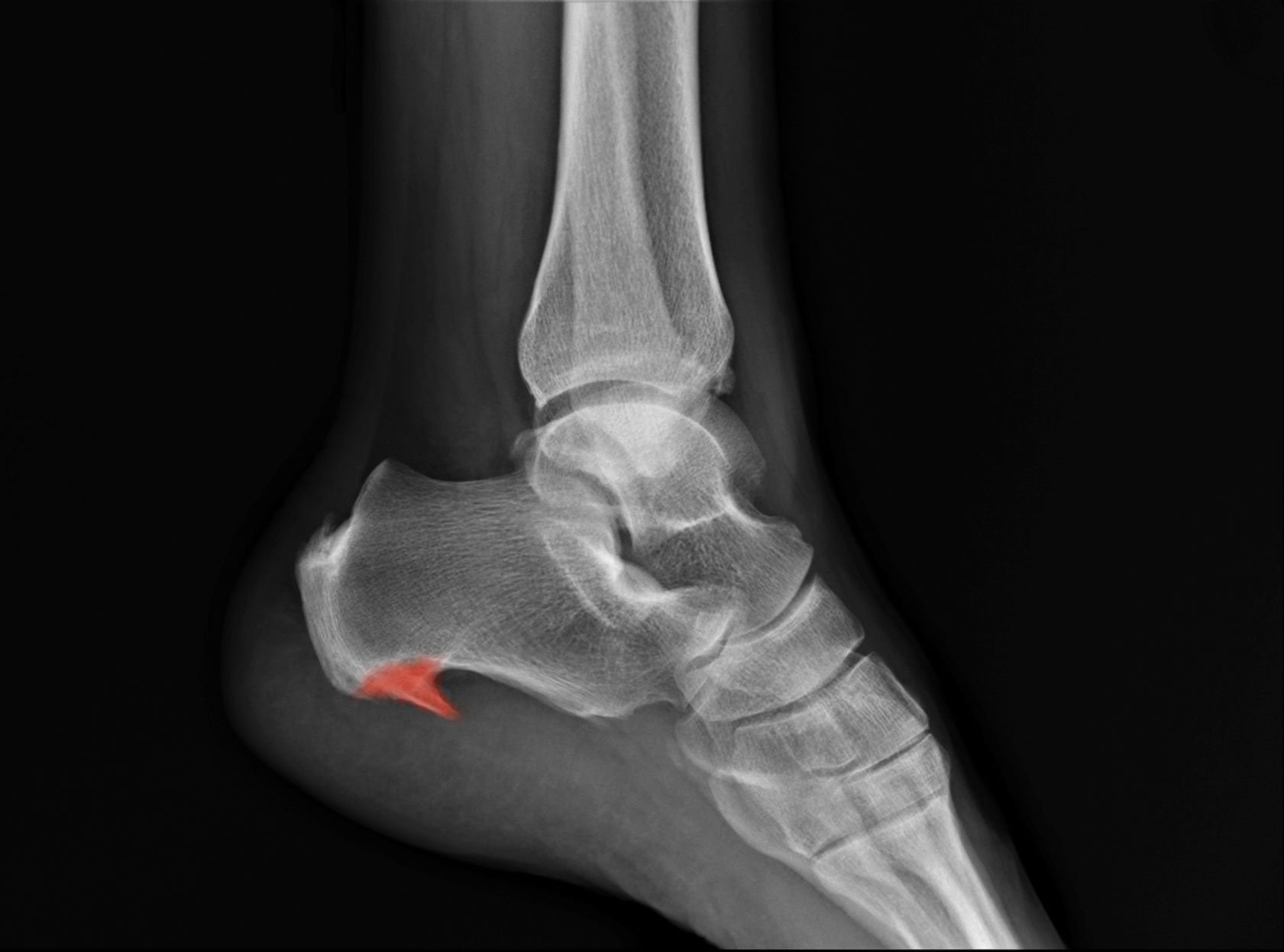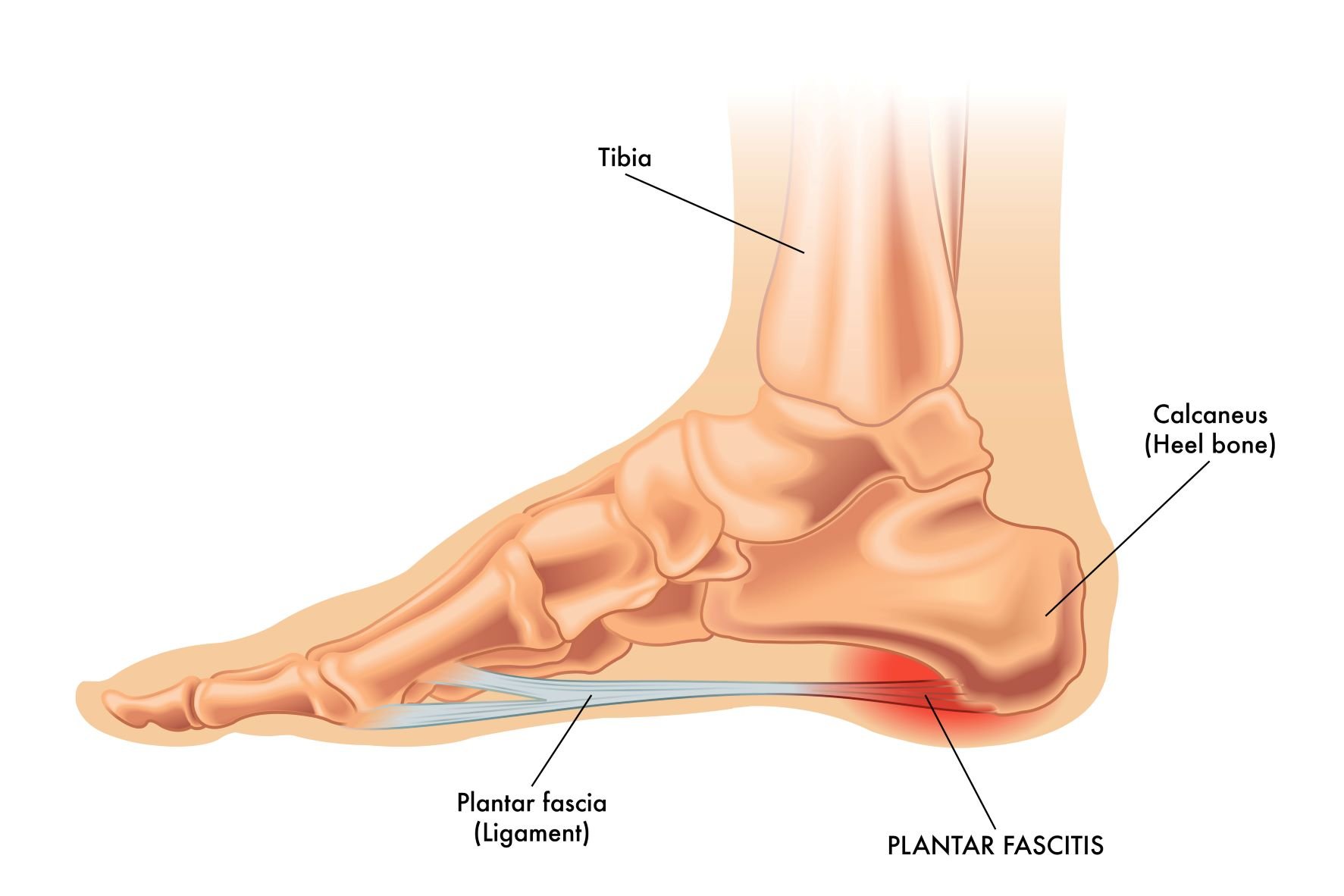Plantar Fasciitis and Heel Spurs: Understanding the Connection
Heel pain is a common issue that Dr. Elton, a leading foot and ankle orthopaedic surgeon at Vail-Summit Orthopaedics & Neurosurgery, sees among the runners, hikers, skiers, and other active residents of Eagle and Summit counties.
Heel pain is often attributed to either heel spurs or plantar fasciitis. Heel spurs themselves rarely cause discomfort. However, they may develop as a result of plantar fasciitis, which is usually the root cause of the pain.
What Are Heel Spurs?
A heel spur is a bony growth that forms slowly over time on the heel bone. Heel spurs develop in response to repetitive stress, consistent stretching of the plantar fascia, or repeated tearing of the membrane on the heel bone.
Risk factors for heel spurs include:
Overuse, such as running on hard surfaces
Gait abnormalities
Poor-fitting shoes
Obesity
Aging (degeneration of the plantar fascia)
It's not uncommon for people to have heel spurs without experiencing any symptoms. However, heel spurs are often linked to other health conditions that can result in pain, with the most prevalent being plantar fasciitis.
What Is Plantar Fasciitis?
Plantar fasciitis is a condition that affects the plantar fascia, a thick band of tissue that runs along the bottom of the foot from the heel to the toes.
The plantar fascia helps support the arch of the foot and absorbs shock when walking or running. When the fascia becomes inflamed from overuse, injury, or other factors, it can cause pain and discomfort.
Activities or conditions that may contribute to the development of plantar fasciitis include:
Repetitive motions such as long-distance running
Occupations that involve prolonged standing
Flat feet or high arches
Degeneration with age
Obesity
Poor footwear
Tight Achilles tendon
Suddenly increase your activity level
Unlike heel spurs, plantar fasciitis is well-known for its painful symptoms, including:
Dull or sharp pain in the heel, especially when taking the first steps in the morning or after periods of rest
Pain that may improve with movement but worsen after prolonged activity
Pain in the arch of the foot
Swelling or tenderness in the heel
Stiffness or tightness
The Link Between Plantar Fasciitis and Heel Spurs
In most instances, plantar fasciitis is the root cause of heel pain. While heel spurs commonly develop due to plantar fasciitis, they often aren't painful themselves.
Not everyone with plantar fasciitis will develop a heel spur, but once they form, they remain permanently. However, treating the underlying plantar fasciitis can usually alleviate the pain and other associated symptoms, despite the heel spurs. This highlights the importance of proper diagnosis and treatment for plantar fasciitis.
Treating Plantar Fasciitis and Heel Spurs
Fortunately, there are several treatment options for plantar fasciitis. Dr. Elton will work with you to develop a personalized treatment plan that may include:
Physical therapy or stretching exercises
Modifying activities
Changing footwear or using orthotics
Over-the-counter anti-inflammatory medications
Night splints
Steroid injections
Although recovery times can vary from a few weeks to several months, most people with plantar fasciitis can heal completely with these methods and return to their normal activities, pain-free. In rare cases, Dr. Elton may recommend surgery if you continue to have chronic, severe symptoms that haven't responded to non-surgical treatments.
Heel spurs, once developed, are there to stay. Fortunately, most people with heel spurs find relief from their symptoms once the underlying condition of plantar fasciitis has been treated. Surgical intervention for heel spurs is only recommended in severe cases.
Expert Care for Heel Pain and Plantar Fasciitis
If you're experiencing heel pain, contact Dr. Elton and his team at Vail-Summit Orthopaedics & Neurosurgery today. As a leading foot and ankle specialist, Dr. Elton will develop a customized treatment plan that fits your unique lifestyle. Whether it's plantar fasciitis, heel spur, or other foot condition, Team Elton is committed to helping you get back on your feet!
Don't let heel pain hold you back. Schedule an appointment today by calling (970) 476-7220 or submitting a consultation request online.




